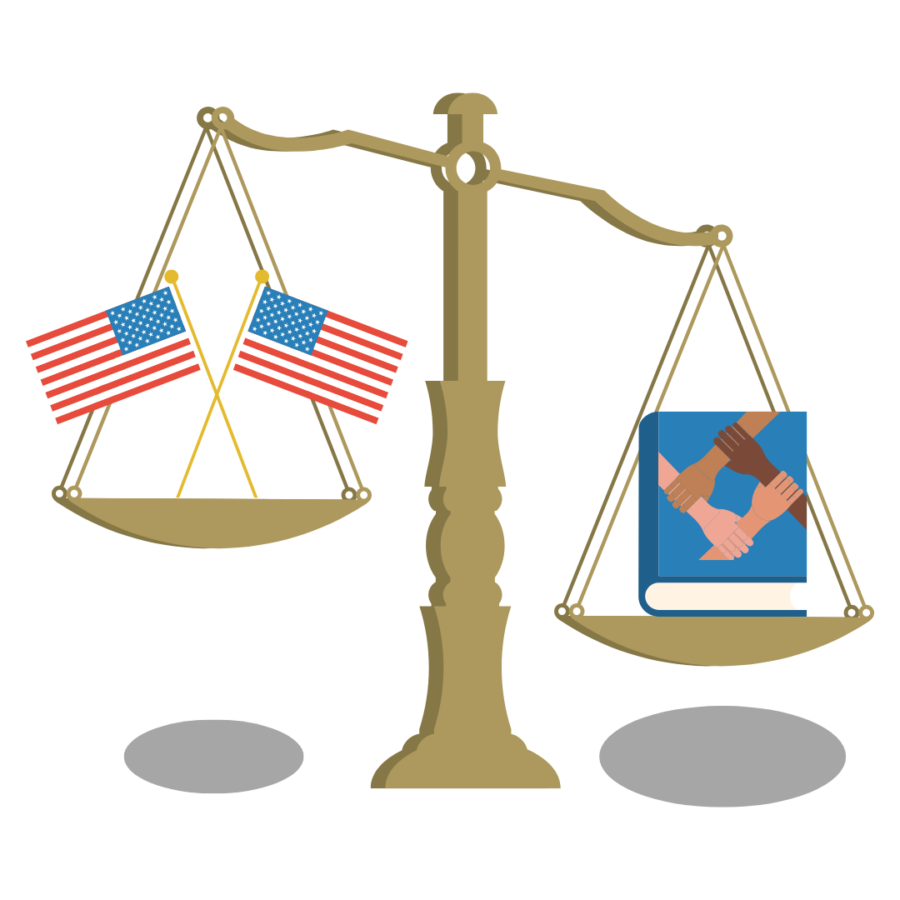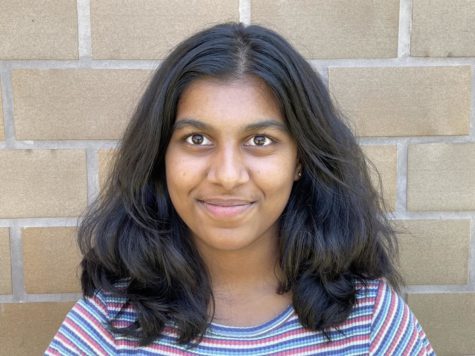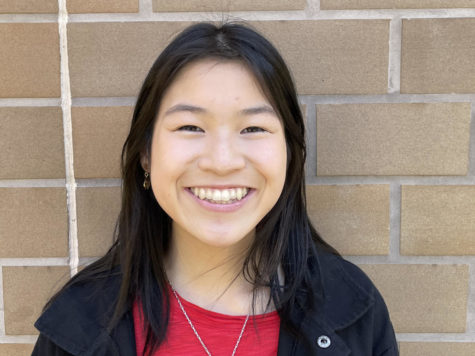The debate over critical race theory continues to grow
The balance of discussing minority struggle and American achievements in representation continues to be debated.
December 8, 2022
Teachings surrounding racial and social issues are nothing new in the American education system. However, in the past two years, education has taken a new trajectory according to many– one where discussion on these social issues has turned into a political and social agenda aimed at students across the U.S. Since then, anger has increased, controversy has worsened and those looking to limit such conversations in classrooms have gained support. In the views of some Americans, the U.S. is taking an unfortunate path by pursuing the teaching of critical race theory.
The term “critical race theory” was first coined by law professor Kimberle Williams Crenshaw. It was a way to describe the approach used to teach and study U.S. policy and institutions in law school through the lens of how racism has shaped the law and society around us. It involved looking at racial bias in US laws, such as incarceration rates that are widely published that suggest racial disparities, yet no specific worldview was considered the “right” view. In fact, U.S. History teacher Jeffrey Vangene has a view of his own.
“I think critical race theory to me comes off as a term that recently made its way around the media in terms of being associated with how we interpret race in the U.S. and how we look at the impact that certain races have had on others,” he said.
Though this idea has existed for decades, it was the police killing of George Floyd that sparked conversations about structural racism. One of the people who spoke out was Christopher F. Rufo, a conservative scholar who, when interviewed on Fox News, explained critical race theory as an “ideology of the federal bureaucracy” that is “now being weaponized against the American people,” specifically in education. Three days later, the administration of President Donald J. Trump told federal agencies to cease their anti-bias training, which they called “divisive, un-American propaganda.”
Though the Biden Administration has now overturned the order, the fire of the discussion has not been put out since then. Many in the U.S., mainly conservative politicians and parents, have denounced conversation on racism and social justice issues in American classrooms, arguing that it promotes an “anti-white, anti-American worldview” that also gives wrong ideas to students.
“Critical race theory is a dangerous and flat-out wrong theory,” Ohio State Representative Don Jones said in 2021. “Students should not be asked to ‘examine their whiteness’ or ‘check their privilege.’”
However, another side argues that critical race theory is essential to teach.
“The recent Black Lives Matter movement has shown that people across the country fully acknowledge the realities of systemic racism are still alive and well, and the need to dismantle oppressive systems and pursue change is more important than ever,” the American Civil Liberties Union (ACLU) wrote.
From the perspective of University of Hawaii law professor Mari Matsuda, structural changes in education and social systems are greatly needed.
“I see it like global warming,” Professor Matsuda told the New York Times. “We have a serious problem that requires big, structural changes; otherwise, we are dooming future generations to catastrophe. Our inability to think structurally, with a sense of mutual care, is dooming us — whether the problem is racism, or climate disaster, or world peace.”
Yet despite this support for such teaching, state legislatures have gone the other way. In just the past two years, more than 35 states have passed or considered legislation on race education. Even in California, a more liberal state, the Placentia-Yorba Linda Unified School District voted in April to ban the teaching of critical race theory in the Orange County school district.
“I don’t want anybody’s politics in [classrooms],” board member Leandra Blades, who supported the ban, told the Los Angeles Times. “I do believe in teaching kids to think critically. But … there are so many things you could teach your kids at home. If you really are passionate about these subjects, then teach them.”
Vangene, however, believes that a balance needs to be struck between teaching only about racial inequality and only about America’s best ideals.
“In my classes, I try to lay out the most fair history possible … I do think I like to not focus solely on minority struggles in the United States, but I do think that my course very fairly hits on a lot of the minority struggles in the United States,” Vangene said.
Additionally, since no section of history is purely black and white, he points out ways that the United States has both helped and hurt our population.
“[We have] an amendable democracy that we have changed over time to fit our country’s needs, and a lot of other countries have mimicked it because we created something pretty cool,” Vangene said. “But I do also acknowledge that on that path to the West we also did expand slavery … and encroached more and more on Native American lands and [by] doing so, forced them on reservations that killed off their way of life, their traditions [and] their religions.”
Importantly, he adds that just teaching critical race theory doesn’t automatically create one-dimensional perspectives concerning race.
“I don’t think that that’s gonna influence someone’s racial perspectives in any way, shape or form. If anything, I just feel like it makes them a more informed US citizen,” he said.
With similar ideas in mind, projects promoting critical race theory, such as one by the University of California, Los Angeles (UCLA) School of Law, have attempted to change perspectives. In August, they launched their “CRT Forward Tracking Project,” a database that is meant to identify “anti-critical race theory activity at local, state and federal levels” that undermine the “teaching of a more complete history of the United States in schools across the country.”
On the other hand, projects identifying the teaching of critical race theory have also been conducted in order to dismantle such teachings, such as the one being planned by the Lakota school board in Butler County, Ohio. As of Sept. 13, the board has approved a plan to create a curriculum audit committee that would help determine if critical race theory instruction is present in the district’s classroom curricula, which Board President Lyna O’Conner said is important in order to represent their “community values.”
The issue has now gone to the national level, as candidates for the 2022 Midterm Elections, primarily the Republican ones, have highlighted critical race theory as a campaign point indirectly and directly, changing the political landscape compared to what it was just a year ago. And as more and more school boards argue over such instruction and more politics flood in, the question of what’s truly important in American education will continue gaining fire in that landscape. Yet whether it’s based on social, political or race-related agendas, many agree that our education system in this manner has changed.
“I look at what I was taught in high school when [I graduated] in 1999,” Vangene said. “It focused a whole lot on the Founding Fathers and things like that … But I think that they forgot to teach us in high school about the struggle of the everyday group of Americans.”
It’s education, he believes, that has the potential to let us view the true realities of American history.
“To me, I’d see it more as a benefit as if we all learned about some of the struggles that we each went through in certain areas of history to get us where we are today and then looked at the world today and acknowledged that there’s certain people that are still struggling with some of the same things, it might get us to be a little bit more on the same page,” Vangene said. “Maybe [we’d be] a little bit more humane and nicer to each other and less biased, opinionated and divisive as we are right now. I often think that education helps bring people together, not so much driving apart.”





